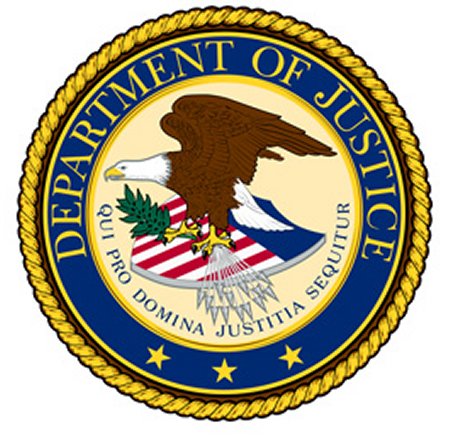
Federal Government Tells Catholic Bishops Not to Destroy Sex Abuse Documents
New York Times
The Department of Justice has sent a sweeping request to every Roman Catholic diocese in the United States not to destroy documents related to the handling of child sexual abuse, a sign that the federal investigation into the church could grow far more extensive.
Catholic bishops have been asked by the federal government to retain their files on a broad array of internal matters, including sexual abuse investigations, and the transfer of priests across state or international borders, or to treatment centers. The request includes documents contained in “secret archives” — the confidential files that are kept by each diocese.
News reports last week revealed that the Justice Department had opened an investigation into all eight Catholic dioceses in Pennsylvania, and the diocese of Buffalo in New York. This marked the first time the federal government had undertaken an investigation of the church’s handling of abusive priests, a scandal that surfaced in the United States in the mid-1980s.
But this request to preserve files, first disclosed by Whispers in the Loggia, a site that closely follows the Catholic hierarchy, suggests that federal investigators are throwing a very wide net. The abuse scandal, long fueled by the shocking details in the church’s own personnel documents, may now grow like an uncontrolled wildfire.
“Every diocese should assume that it is potentially under investigation,” said Marci A. Hamilton, a law professor and founder of CHILD USA, a think tank at the University of Pennsylvania that studies child sexual abuse and prevention. “Given the crisscrossing paths of priests sent from one diocese to another across the United States, I can understand why someone in Washington would say, ‘O.K., everybody needs to hold onto their evidence right now because we’re just starting to sketch out where the pedophiles have been sent by the hierarchy.’”
Abuse victims have despaired for years that the church in the United States would never be called to fully account for the perpetrators and the people they violated. There have been government-run inquiries in countries like Australia and Ireland, but the federal government in the United States has been reluctant to intervene, until now. The letter from the United States attorney suggested only the potential of a broader investigation, but abuse victims greeted it as a turning point nevertheless.
“It’s going to bring tears to my eyes just thinking about it,” said Tim Lennon, president of the Survivors Network of those Abused by Priests. “It’s hopefully the beginning of a process of long-awaited justice. For survivors, it’s been a long road to bring those who have harmed children and the vulnerable to justice.”
The request to the bishops was contained in a seven-page letter and set of instructions from United States Attorney William M. McSwain, of the Eastern District of Pennsylvania, and sent to the president of the United States Conference of Catholic Bishops, Cardinal Daniel DiNardo of the Archdiocese of Galveston-Houston. The letter, dated Oct. 9, asked that Cardinal DiNardo “immediately transmit copies” to all dioceses in the United States. The bishops conference then sent it to the dioceses on Oct. 23.
Mr. McSwain said in his letter that at this point there was “no need” for the bishops to produce any documents “solely on account of this letter.” He said that the letter was only a request that the church entities “not destroy, discard, dispose of, delete, or alter any of the described documents.” But he started his letter by saying that his office was “investigating possible violations of federal law.”
The general counsel of the bishops’ conference, Anthony R. Picarello Jr., warned in a cover letter to the bishops that the request was “very broad.” Mr. Picarello wrote that the bishops conference had taken steps to preserve its documents, and advised the dioceses to do the same. But he said he had told the United States attorney that the bishops’ conference “lacks the authority” to make sure that the dioceses retain their documents.
In a statement on Friday, Mr. Picarello said, “We have transmitted the U.S. Attorney’s letter at his request and in the spirit of cooperation with law enforcement.” His office said he was unavailable for a telephone interview.
Mr. Lennon said that two groups advocating for survivors first asked the federal government for an investigation in 2003. He said that survivors asked again in 2014 and in August of this year, after a Pennsylvania grand jury released a report that found more than 300 priests had abused over 1,000 children in a 70-year period.
Since then, attorneys general in at least a dozen states have opened investigations into whether their local dioceses engaged in cover-ups of priests and other church employees who sexually abused minors. The District of Columbia and Virginia announced investigations this past week.
Many dioceses have already said they will cooperate with local prosecutors, and they are likely to take the same stance in relation to the request to preserve their documents.
“We’re doing that anyway,” said Penny Wiegert, director of communications and publications for the Diocese of Rockford, in Illinois, “because we’re cooperating with our own Illinois state attorney, and we have our own documentation retention protocol anyway.”
But in the past, several dioceses have been accused of destroying files on abusive priests, according to BishopAccountability.org, a research and advocacy group. Some church employees, including priests, nuns and lay people, have been responsible for blowing the whistle when documents were discarded or shredded, noted David Clohessy, a founder of the survivors network.
He said on Friday, “We applaud this move and hope it prevents the destruction of incriminating records that could lead to the prosecution of clerics who commit or conceal horrific child sex crimes.”
